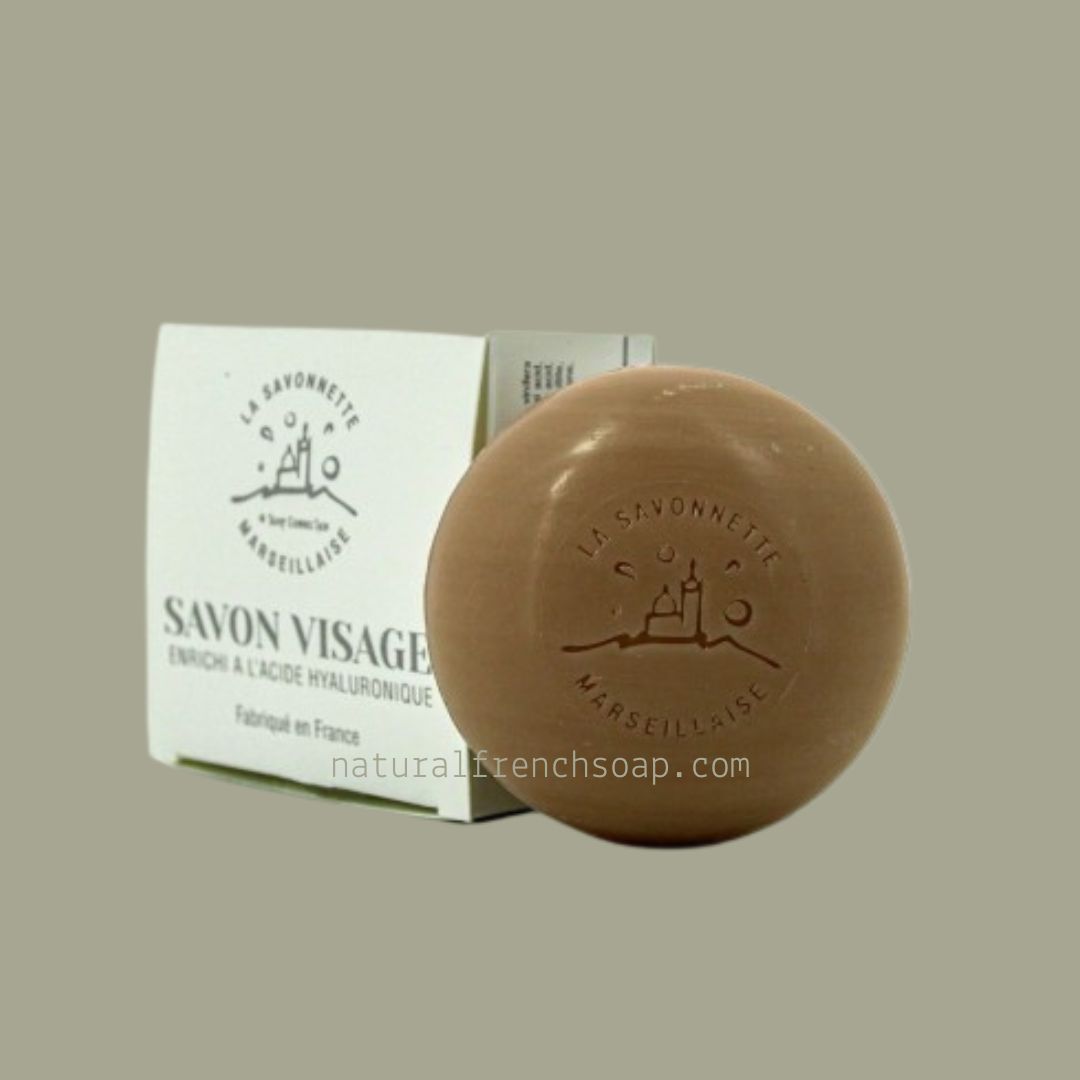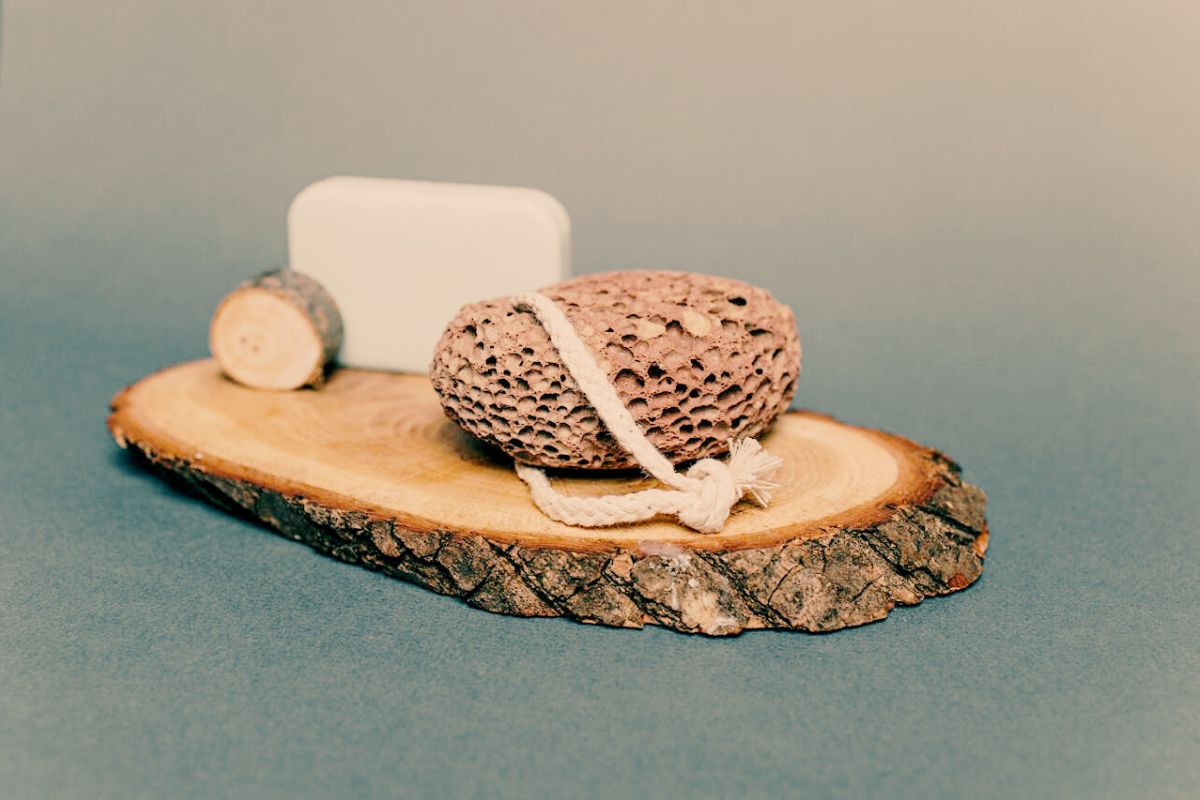Discover how hyaluronic acid enhances skin health and hydration. Learn its key benefits and how to incorporate it into your skincare routine. Read more!
Benefits of Hyaluronic Acid for Skin Health and Hydration

Want to supercharge your skincare with a hydration hero like hyaluronic acid? This powerhouse ingredient, found in many products containing hyaluronic acid, hydrates, reduces fine lines, heals, and improves texture. Here, we discuss the benefits of hyaluronic acid for skin and how it works.
Quick Facts
-
Hyaluronic acid is basically a hydration superhero and holds up to 1000 times its weight in water. So it's like a camel for your face!
-
This sticky stuff hydrates, fights fine lines, and helps heal scars—it turns your skin into a smooth, youthful landscape.
-
Mix hyaluronic acid with other ingredients like vitamin C or retinol for a skincare cocktail to make your skin sing! But always check with a pro before injecting your way to beauty.
What is Hyaluronic Acid?

Hyaluronic acid is often called a skincare miracle, but what is it? In simple terms, it is a naturally occurring glycosaminoglycan found throughout the body, especially in our skin, joints, and eyes. This is a gooey, slippery substance is essential for maintaining skin hydration, keeping our complexion plump and smooth.
But as we age, our body's production of hyaluronic acid decreases, causing dryness and visible signs of ageing. Skincare products with this super powerful ingredient can replenish what our body is producing as it starts to deplete.
That's why hyaluronic acid is a must-have in many skincare routines; it fights the effects of ageing and keeps skin youthful and glowing.
How Hyaluronic Acid Works on Skin

Hyaluronic acid performs its magic on the skin through its molecular structure. This chain-like structure allows it to hold onto water molecules, keeping the skin hydrated.
In fact, a quarter teaspoon of hyaluronic acid can hold about 1.5 gallons of water! But that's not all—it also improves skin flexibility and elasticity. It makes your skin more resilient and less prone to damage. This is because its chain-like structure allows your skin to stretch and flex without losing its shape.
Research shows that hyaluronic acid is an antioxidant that protects the skin from free radicals that cause ageing. It hydrates, plumps the skin, and defends against environmental stressors—that's how good it is for skincare.
The molecular weight of hyaluronic acid is also important. With a molecular weight between 50 and 1000 kDa is best for the skin. While larger molecules can't penetrate the skin barrier, smaller ones can deeply moisturise and improve elasticity.
Hydration & Moisture Retention
One of the many benefits of hyaluronic acid is its water retention—up to 1000 times its weight, to be exact. Even a small amount can provide intense hydration and make your skin look and feel plump and refreshed.
For maximum benefit, take hyaluronic acid products and apply them to damp skin. This helps maximize moisture absorption, ensuring that your skin stays hydrated for longer. Think of it as giving your skin a big, refreshing drink of water.
It's no wonder hyaluronic acid is a common key ingredient in moisturising creams, lotions, soaps and serums. Whether you use a lightweight serum or a rich cream, layering is key to locking in moisture.
Anti-Ageing Benefits

If you want to turn back the clock, hyaluronic acid should be in your skincare arsenal; it improves skin elasticity and makes you look youthful. Hyaluronic acid helps to improve skin elasticity and make you look youthful.
Topical hyaluronic acid can reduce fine lines and wrinkles and give you smoother skin. It plumps the skin and makes fine lines less visible.
Studies show that hyaluronic acid with a 130 kDa molecular weight can improve skin elasticity by up to 20%. With regular use, your skin will look firmer, plumper, and more youthful.
Healing Properties
Hyaluronic acid also has healing properties. It promotes tissue regeneration and repair, helping in wound healing and reducing scars.
In fact, hyaluronic acid is used in fillers to repair or conceal scars and gives noticeable results, especially for acne scars. It acts as a body's scaffold structure, supporting cellular migration during tissue repair.
Whether it's a small cut or a major skin issue, hyaluronic acid is key to skin healing and recovery, so it's essential in wound healing therapies.

Skin Texture
Regular use of hyaluronic acid can revitalise skin texture and make fine lines less visible over time. Hyaluronic acid holds a lot of water and improves overall texture.
The molecular weight of hyaluronic acid is also important. Lower molecular weight variants can penetrate deeper into the skin and improve texture. Hyaluronic acid is the answer to smoothing out rough patches and achieving even skin tone.
Hyaluronic Acid for Specific Skin Concerns
Hyaluronic acid is like a Swiss Army knife for your skin. It solves many skin concerns, whether you have acne, rosacea, or eczema.
-
Acne-Prone Skin: Hyaluronic acid reduces inflammation, prevents scarring, and keeps your skin hydrated. Say goodbye to fine lines and wrinkles and calm your breakouts—it's a win-win! Its ability to hold moisture without clogging pores makes it perfect for acne-prone skin. By maintaining the skin's natural moisture barrier, it helps reduce oil production, which can lead to fewer breakouts over time.
-
Rosacea Relief: If rosacea has you seeing red, hyaluronic acid can save your skin. Its anti-inflammatory properties soothe and calm irritated skin, reduce redness, and give you an even tone. Plus, added hydration makes your skin look smoother and more youthful. The gentle nature of hyaluronic acid means you can use it daily without irritating sensitive rosacea-prone skin and maintain a balanced and calm-looking skin.
-
Eczema Comfort: Eczema sufferers, rejoice! Hyaluronic acid relieves dryness and flakiness and makes your skin feel more comfortable. Its moisture-retaining ability reduces itching and inflammation and gives your skin the TLC it needs. By forming a barrier on the skin's surface, it prevents moisture loss and shields the skin from environmental irritants that can trigger eczema symptoms.
-
Anti-aging Benefits: Hyaluronic acid is key to anti-aging. It improves skin elasticity, plumps the skin to reduce fine lines and wrinkles, and supports collagen production for firmness. Regular use gives you smoother, more supple skin, and its moisture-retaining ability prevents new wrinkles, making it a must-have in any anti-ageing skincare regimen.
-
Anti-inflammatory Benefits: Hyaluronic acid hydrates and soothes irritated skin by reducing redness and swelling. It's perfect for acne, rosacea, and eczema, and it promotes healing and even skin tone. This dual action makes it a great addition to any skincare regimen for calm skin.
Hyaluronic acid is also good for general skin dehydration or dullness. Its moisture-attracting properties make it a must-have in anti-ageing and brightening skincare.
Whether you have breakouts, redness, or dryness, hyaluronic acid is a multi-tasking ingredient for healthier skin. Its gentle nature makes it suitable for all skin types and forms the base of a skincare routine that addresses multiple concerns at once.
Clinical Study Results of Hyaluronic Acid-Containing Products
.jpg)
When it comes to skincare, joint health, and eye health, clinical studies are the gold standard for proving efficacy. Scientists have found hyaluronic acid throughout the body, especially in the skin, eyes, and joints, and numerous studies have highlighted its many benefits.
One study published in the Journal of Clinical and Aesthetic Dermatology found that using a hyaluronic acid serum significantly improved skin hydration and reduced the appearance of fine lines and wrinkles in just four weeks. Imagine turning back the clock on your skin in just a month!
For those dealing with joint pain, a study in the Journal of Rheumatology showed that hyaluronic acid injections improved joint pain and function in patients with osteoarthritis. This gooey, slippery substance, which the body produces naturally, can be a game-changer for joint health.
Eye health also gets a boost from hyaluronic acid. A study in the Journal of Ophthalmology found that hyaluronic acid eye drops improved dry eye symptoms and reduced inflammation in patients with dry eye syndrome. So, if your eyes feel like the Sahara Desert, hyaluronic acid might be the oasis you need.
These clinical studies underscore the versatility and effectiveness of hyaluronic acid-containing products. However, it’s crucial to consult your healthcare provider about hyaluronic acid, especially if you have underlying medical conditions or are taking medications.
When choosing a product, look for high-quality, pharmaceutical-grade hyaluronic acid and follow the recommended usage instructions. By incorporating hyaluronic acid into your skincare routine or taking hyaluronic acid supplements, you can enjoy the many benefits this powerhouse ingredient offers—from plumper, hydrated skin to healthier joints and eyes.
Hyaluronic Acid Serum: A Concentrated Formula for Intense Hydration

If your skin is drier than a cactus in the desert, you might need a serum. This concentrated formula provides an intense dose of hydration and makes your skin look and feel plump and refreshed.
A hyaluronic acid serum is easy to apply after cleansing and toning before moisturising. This locks in moisture, reduces fine lines and wrinkles and gives you smoother, even skin.
When shopping for a hyaluronic serum, look for one with a high concentration of hyaluronic acid, typically between 1-5%. To keep your skin happy, opt for a fragrance-free and hypoallergenic formula.
Want to supercharge your skincare? Combine this serum with potent ingredients like vitamin C, retinol or facial oils. This dynamic duo (or trio) can address multiple skin concerns, from hydration to anti-ageing, and make your skin happy.
How to Use Hyaluronic Acid in Your Skincare
Adding hyaluronic acid to your skincare can be a total game changer for glowing skin. Whether you prefer serums, moisturisers, or facial toners, there are many options to choose from.
When choosing a hyaluronic acid product, look for one with a high concentration of hyaluronic acid, ideally between 0.5% and 2%. This way, you'll get enough of the good stuff to see the difference.
To apply, start with a clean face and neck. If you're using a serum, gently massage a few drops into your skin until fully absorbed. Then, follow up with your favourite moisturiser to lock in all that hydration. If you prefer a one-step process, a moisturiser with hyaluronic acid can be just as effective.
Hyaluronic acid should be combined with other potent ingredients like vitamin C or retinol for best results. This dynamic duo can address multiple skin concerns, from hydration to anti-ageing, and make your skin happy. Just remember, patience is key. It may take a few weeks to see the full effects of hyaluronic acid on your skin.
Hyaluronic face soap gently cleanses while hydrating your skin, maintaining moisture balance without stripping natural oils. Ideal for sensitive or dry skin, it soothes conditions like eczema or rosacea. Use it morning and night to refresh and cleanse, followed by a hyaluronic acid serum and moisturizer for added hydration. Choose soaps without harsh chemicals for gentle care, ensuring your skin stays clean and hydrated.

Mixing with Other Ingredients
Hyaluronic acid is multi-tasking, so it's a great addition to any skincare routine. Mixing it with vitamin C can hydrate and brighten the skin, perfect for dull skin.
With retinol hyaluronic acid combats dryness, moisturises and addresses signs of aging. This duo can target multiple skin concerns, from dehydration to texture.
So go ahead and mix and match your skin will thank you for it. Consult your healthcare provider about hyaluronic acid to ensure the combinations suit your skin type and concerns.
Consult a Healthcare Provider About Hyaluronic Acid
While hyaluronic acid is a skincare superhero, it's still important to use it wisely. Here are some precautions to consider:
-
Patch Test: If you have sensitive skin, patch test first to see if you have any reaction.
-
Open Wounds: Don't apply to open wounds or cuts.
-
Pregnancy and Breastfeeding: Consult your healthcare provider before using while pregnant or breastfeeding.
-
Allergies and Sensitivities: Check with your healthcare provider for allergies or sensitivities.
-
Medications: Speak with your healthcare provider about whether you have previously taken medicines like blood thinners.
Hyaluronic acid can interact with certain medications and may not be suitable for people with certain medical conditions like kidney disease. Always consult with your healthcare provider to make sure it's safe for you, especially if you have any underlying health issues or taking any medications.
By following these precautions, you can enjoy the benefits of hyaluronic acid and keep your skin safe and healthy.
Choosing the Right Product
Choosing the right product makes a big difference. Consider your skin type—sensitive skin may need lower-concentration formulas. The ideal concentration of hyaluronic acid in products is between 0.5% and 2%.
For acne-prone skin, choose lightweight, non-comedogenic serums to avoid clogging pores. Budget-friendly options can be just as effective as premium products.
Apply products from thinnest to thickest for maximum absorption and effectiveness. Happy shopping!
Conclusion
In summary, hyaluronic acid is a skincare superhero that can do many things for your skin, from hydrating to reducing fine lines and wrinkles. By knowing how hyaluronic acid works and how to use it in your skincare routine, you can get the most out of it and have healthier-looking skin.
Whether you want to address specific skin concerns or just want to maintain healthy, glowing skin, hyaluronic acid is a great addition to any skincare routine. With its ability to hold up to 1000 times its weight in water, hyaluronic acid is a great humectant that can provide long-lasting hydration and plump and firm the skin.
Combining hyaluronic acid with other skincare ingredients and using it consistently gives you many benefits that will make your skin look and feel its best. So why not try hyaluronic acid and see the difference for yourself?
FAQs
What is hyaluronic acid, and why is it good for the skin?
Hyaluronic acid is like a water bottle for your skin; it keeps it hydrated, plump and smooth—so you can look like a dewy peach instead of a dried-up raisin! Stay juicy, my friend!
How does hyaluronic acid work on the skin?
Hyaluronic acid is like your skin's BFF; it binds water like a sponge to keep things hydrated and plump. So, goodbye dryness and hello to a bouncy complexion!
Can hyaluronic acid help with anti-aging?
Yes! Hyaluronic acid is like a fountain of youth in a bottle; it plumps your skin and kicks fine lines to the curb. Who knew anti-ageing could be so juicy?
Is hyaluronic acid safe to use?
Yes, hyaluronic acid is generally safe, but always check with your healthcare provider about it—after all, you wouldn't ask a cat for driving tips!
How do I choose the right hyaluronic acid product for my skin type?
To avoid looking like a walking raisin, match your hyaluronic acid to your skin type—lightweight serums for acne-prone skin have an ideal concentration of around 0.5% to 2%. Unless you want to look like a greasy pizza face, stay away from comedogenic products!






